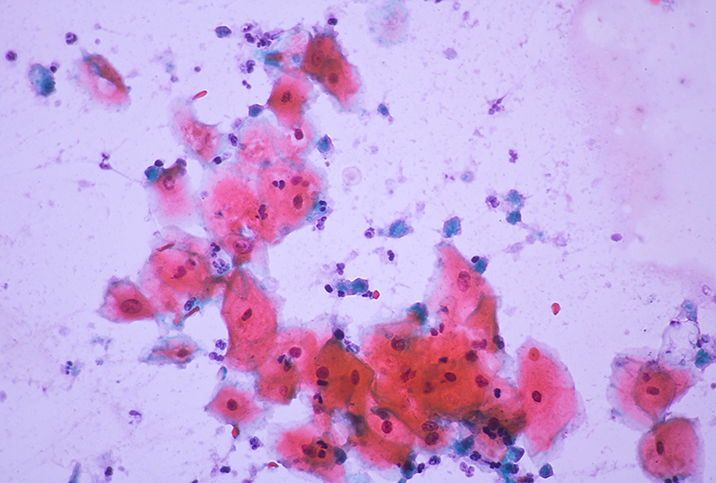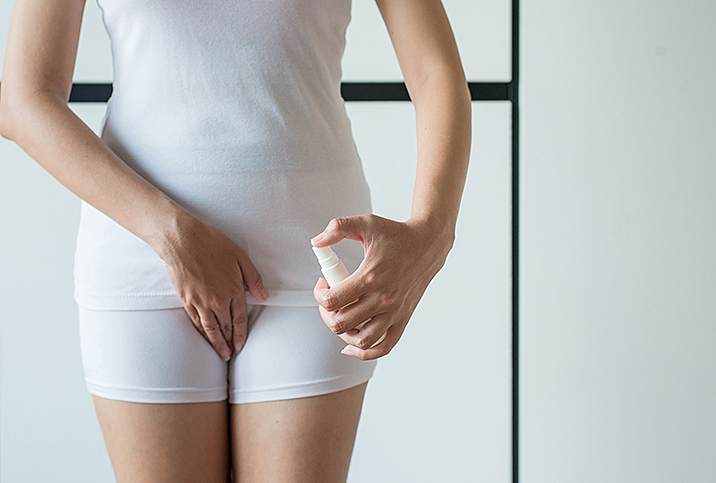5 Reasons Your Vagina Smells 'Off'

First things first: Vaginal odor is totally normal. No vagina needs to smell like roses, lilacs, grapefruit or whatever ads for feminine washes and wipes would have you believe.
"Tangy, coppery, sweaty and sweet are all normal odors," said Chemen Neal, M.D., a gynecologist in Indianapolis and an associate professor of clinical obstetrics and gynecology at the Indiana University School of Medicine.
Most changes in odor can be traced to sweat or specific times in your menstrual cycle. But catching a whiff of something new and unpleasant could imply a health issue.
Understanding vaginal odor
Vaginal odor is a common concern, according to Maria Sophocles, M.D., a gynecologist and medical director at Women's Healthcare of Princeton in New Jersey.
"Most women worry about odor as a socially embarrassing problem," she explained. "Others worry that vaginal odor may indicate an STI or cancer."
Just as skin has a scent, vaginas have a distinctly human aroma. Older research published in the Archives of Gynecology and Obstetrics suggests that the smell comes from several "mini-odors," such as skin bacteria and vaginal discharge.
Sometimes vaginal odor changes due to a medical problem, but different odors are more likely caused by fluctuating hormones, stress, changes in skin bacteria, and even the food you ate last night, Neal said.
If your vagina still smells "off" after bathing or waiting it out for a couple of days, consult a doctor to determine if the foul odor might be caused by one of the following medical issues:
1. Bacterial vaginosis
"By far the most common cause of vaginal odor is bacterial vaginosis, or BV, which is not a true infection but rather an overgrowth of bacteria types which are found normally in the vagina," Sophocles explained.
Bacterial vaginosis causes a strong, fishy odor that doesn't go away over time or after washing. You might notice the smell during sexual intercourse or immediately after showering, Neal said. This condition also causes itching or pain on the vulva or in the vagina.
Though BV occasionally goes away on its own, it's best to see a doctor for diagnosis and proper treatment, which might involve a topical cream or gel, vaginal suppository or oral prescription medication.
2. Trichomoniasis
A strong fishy odor could also be associated with trichomoniasis, Neal said. Trich is a common, curable sexually transmitted infection (STI) caused by a parasite.
Other symptoms include the following:
- Unusual discharge
- Vaginal itchiness or irritation
- Painful urination
Getting a trich diagnosis requires a visit to a doctor for a pelvic exam and a swab of vaginal discharge. Almost all cases of trich disappear after treatment with antibiotics.
3. Forgotten tampon
A pungent, foul odor could mean you forgot to remove a tampon, according to Neal and Sophocles. Research published in the Journal of Obstetrics and Gynaecology suggests that teenage girls are more likely than older women to experience "tampon loss."
"If you suspect you have a retained tampon and there is a strong vaginal odor, you should be examined right away to reduce the risk of developing toxic shock syndrome," Sophocles said.
4. Postabortion infection
Abortion is a medical procedure, and like all medical procedures, it can temporarily raise your risk of infection. Abortion complications are rare, but a strong vaginal odor after the procedure can be a sign of infection, Sophocles said.
Symptoms of postabortion complications include the following:
- Fever
- Excessive bleeding
- Lower abdominal or pelvic pain
Consult a healthcare professional if you are experiencing any signs of infection along with abnormal vaginal odor.
"[You] should be evaluated right away in order to get antibiotics," Sophocles said.
5. Advanced cervical or vaginal cancer
"A very foul odor with heavy discharge that is bloody or like pus may be present in advanced stages of cervical or vaginal cancers," Neal explained. "However, these conditions are not very common and should not be the first thought when vaginal odor is present."
Early-stage cancer does not always cause symptoms, so preventive cancer screenings are vital. Potential causes for concern include the following:
- Abnormal vaginal bleeding
- Watery or bloody vaginal discharge
- Pain during sex
- A lump in your vagina
- Pelvic pain
Neal emphasized that cancer is not a common cause of vaginal odor. Still, if you're concerned about your risk of cervical cancer or vaginal cancer, consult a healthcare professional.
How to prevent vaginal odor
In most cases, vaginal odor is normal and healthy. If you want to minimize the smell of sweat or body odor, Sophocles recommended changing underwear frequently. Your vagina is self-cleaning, so you shouldn't use any products inside your vagina. This can cause irritation and may actually exacerbate odor instead of lessening it. To wash your vulva (the outer part of your genitals), use a mild, unscented cleanser.
If you have concerns about unusual vaginal odor, talk to your doctor. They can help you pinpoint any underlying issues and offer solutions appropriate to your symptoms.


















